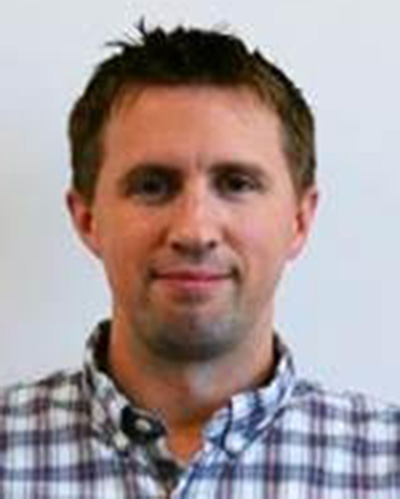Participants have the option of taking a two-day short-course bundle at discounted costs.
In addition to in-person participations of the short courses, we are also offering online participations.
The online participants will access live streaming of the real-time lectures synchronously.
Short Course Registration Info
Short course registration includes a complete set of course notes. Payment can be made on line with MasterCard, Visa,
Discover, or American Express. Lunch and snacks for the breaks will be provided each day for in-person participants.
One-Day Short Courses
- Fundamentals of Powder/Granular Rheology and Flow (Sat Oct 18)
- Applied Powder Rheology (Sun Oct 19)
| Registration Fees for a One-Day Short Course |
Through 9/5/2025 |
After 9/5/2025*** |
| In Person |
Online |
In Person |
Online |
| Member* |
$600 |
$400 |
$700 |
$500 |
| Non-Member** (includes membership for 2026) |
$750 |
$520 |
$850 |
$620 |
| Student Member* |
$300 |
$200 |
$400 |
$300 |
| Student Non-Member** (includes membership for 2026) |
$350 |
$240 |
$450 |
$340 |
| Retired Member* |
$300 |
$200 |
$400 |
$300 |
Two-Day Short Course Bundle
- Fundamentals of Powder/Granular Rheology and Flow + Applied Powder Rheology (Sat Oct 18 – Sun Oct 19)
| Registration Fees for a Two-Day Short Course Bundle |
Through 9/5/2025 |
After 9/5/2025*** |
| In Person |
Online |
In Person |
Online |
| Member* |
$900 |
$600 |
$1,000 |
$700 |
| Non-Member** (includes membership for 2025) |
$1,050 |
$720 |
$1,150 |
$820 |
| Student Member* |
$450 |
$300 |
$550 |
$400 |
| Student Non-Member** (includes membership for 2025) |
$500 |
$340 |
$600 |
$440 |
| Retired Member* |
$450 |
$300 |
$550 |
$400 |
* Member rates are available only to registrants who are members in good standing as of June 30, 2024.
Member rates are also available to non-members who are registered to attend the 96th Annual Meeting in the same registration order.
** Non-members who are registered to attend the 96th Annual Meeting may register for the short course at the member rates in the same registration order.
*** Subject to availability. Cutoff date is Friday 10 October 2025.
Cancellations for the short course received by email (c/o The Local Arrangements Chair, Christine Roberts)
by Friday 5 September 2025
will be refunded minus a $50 administrative charge. No refunds will be granted after that date.
Fundamentals of Powder/Granular Rheology and Flow
Alban Sauret, University of Maryland
Abhi Singh, Case Western Reserve University
Thomas O’Connor, Carnegie Mellon University
James Gilchrist, Lehigh University
Course Description
Available Soon.
Course Outline
-
Introduction (1.5 - 2 hours)
-
Industrial and natural flows
-
Classic experiments and flows (shutes, tumblers, funnels, conveyors)
-
Classification of powders (what is a powder/granular material?)
-
Fundamental forces/interactions (particle-scale interactions, adhesion,
capillarity, friction)
-
Collective behavior (mixing, segregation, jamming)
-
Stress propagation in powders (1.5 - 2 hours)
-
Scaling analyses (density, gravity, friction, cohesion)
-
Constitutive equations of freely flowing powders
-
Cohesive granular rheology
-
Role of polydispersity from ideal from non-spherical particles
-
Wall friction
-
Simulations of powders/granular media
-
LAMMPS/DEM tutorial (1.5 - 2 hours)
-
Scaling, microstructure, force chains, and other micro-to-macro scale calculations
from simulations (1.5 - 2 hours)
Instructors
Applied Powder Rheology
Abhi Shetty, Anton Paar
James Eickhoff Jr., Anton Paar
Course Description
Everything flows – and so does powder! Powder rheology offers adequate tools for imitating
the manifold powder handling processes out there - from silo discharge where different normal
stresses act on the individual particles resulting in their stress-dependent flow behavior,
over to dispersion processes where particle clusters need to be separated homogeneously by a
fluid and all the way to the powder coating process during which powders are fluidized to
overcome their bulk solid character for better transport properties. This short course
comprises a theoretical part as well as a hands-on session.
The theory part covers an introduction to particle technology and what governs powder flow and
all the different tests both static and dynamic in nature which can be done on a modern air-bearing
rheometer which includes tests such as: fluidization, shear testing, wall friction , permeability
tests, fluidized bed viscosity, pressure drop, envelope density, etc. Special attention will be given
to shear testing and its underlying Mohr Coloumb theory – typically rather new for people coming from
rheology. All test methods and their interpretation are explained along with material-specific
examples: battery powders, laundry detergent, pharmaceutical samples. Different case studies will be
discussed which will show the power of combining testing to solve real life processing challenges.
Additionally a hands-session will give you a chance to experience how to handle powders and perform
measurements with them. Participants will perform their first shear and cohesion strength measurement
and discuss the results with the teacher.
Course Outline
-
Welcome and Overview (0.25 hour)
-
Introductions, course objectives
-
Importance of powder rheology in industrial and research settings
-
What attendees will gain from the day
-
Session 1: Introduction to Powder Rheology (1.5 hours)
-
What is powder rheology?
-
Comparison with liquid rheology
-
Factors influencing powder flow (cohesion, size, humidity, electrostatics)
-
Historical perspective
-
Powder rheological characterization methods
-
Applications in pharmaceuticals, food, additive manufacturing,
and dry battery manufacturing
-
Session 2: Powder Shear Cell – Principles and Interpretation (1.5 hours)
-
Basics of shear testing in powders
-
From shear to flowability
-
Mohr circle analysis, yield loci explained easily
-
Shear cell types (ring shear, annular)
-
Evaluation of flowability indices (ffc, FF, Cohesion, UYS, angle of internal friction)
-
Example use case studies
-
Session 3: Powder Flow Cell – Theory and Applications (1.5 hours)
-
Principle of operation of the Powder Flow Cell
-
Test types: Fluidization, Tensile Strength, Segregation, Flowability (Warren Springs,
BFE, SE) and other multipurpose tests like compressibility, Envelope density.
-
Interpreting results
-
Example use case studies
-
Session 4: Lab Component (2 hours)
-
Shear cell testing with cohesive materials like Limestone
-
Fluidization test with powder flow cell with Geldart A type materials
-
Envelope density test (time permitting)
-
Panel Discussion and Wrap-up (0.25 hour)
-
Recap of major points - Take away messages
-
Open floor for attendee questions
Instructors

Abhishek Shetty
Anton Paar
Dr. Abhishek Shetty is the Lead Scientist at the Advanced Technical Center of
Anton Paar USA. He earned his B.S. in Chemical Engineering from the National Institute of Technology
Karnataka, followed by an M.S. and Ph.D. in Chemical Engineering from the University of Michigan,
Ann Arbor. With more than 20 years of experience spanning academia, consumer packaged goods, and
advanced instrumentation, Dr. Shetty has built a strong track record at the intersection of materials
science and technology development. He is a named inventor on two U.S. patents, has authored numerous
peer-reviewed journal articles that have collectively garnered hundreds of citations, and has presented
his work at leading international scientific conferences. At Anton Paar, Dr. Shetty leads the development
of next-generation materials characterization methods within the company’s rheology portfolio. Collaborating
with global teams, he drives innovation in advanced rheometric applications that enable scientists and
industries to better understand and engineer complex materials.

James P. Eickhoff Jr.
Anton Paar
James P. Eickhoff Jr. is the principal application engineer for the rheology division as a member
of the Advanced Technical SupportCenter at Anton Paar USA. He has over 20 years of theoretical and
experimental rheology training, including the last 18.5 years with Anton Paar having guided current
and prospective customers on the use of rheological techniques in their industrial and academic
research. James earned a Bachelor’s and Master’s Degree in Chemical Engineering from Michigan
Technological University and Clemson University, respectively. In his spare time, James enjoy long
distance running as well as spending time outdoors with his two black Labradors and wife of 13 years.